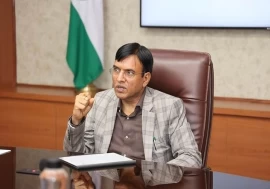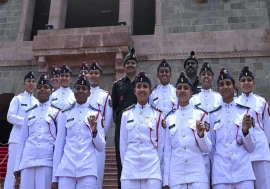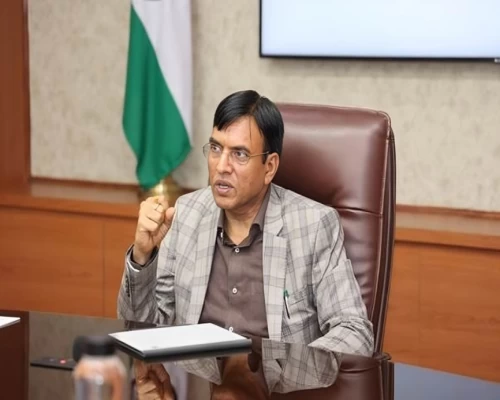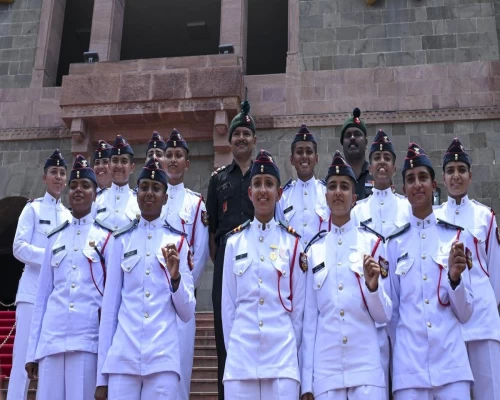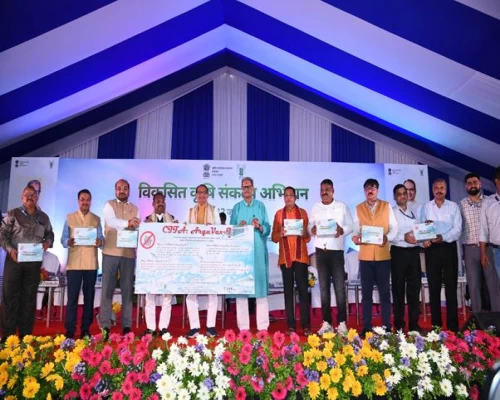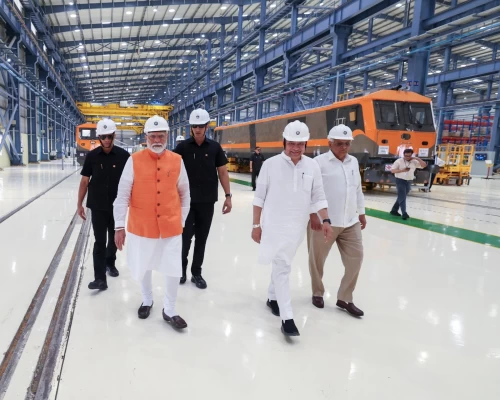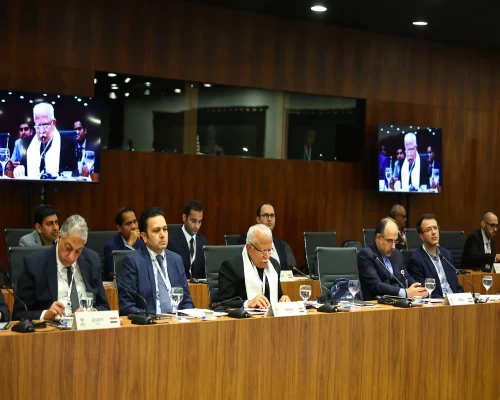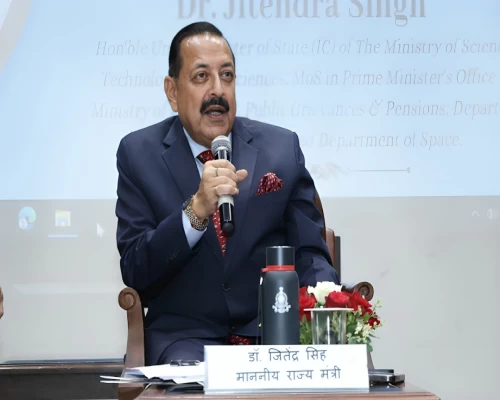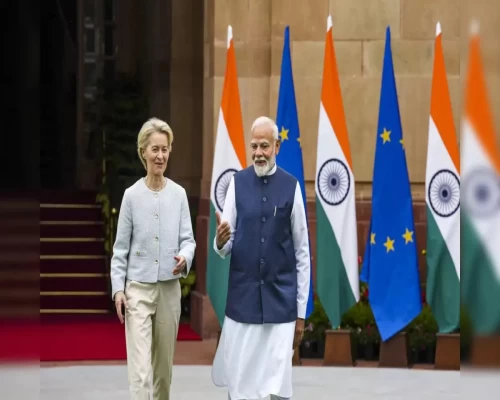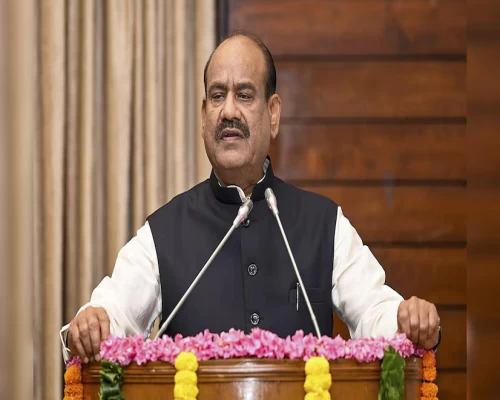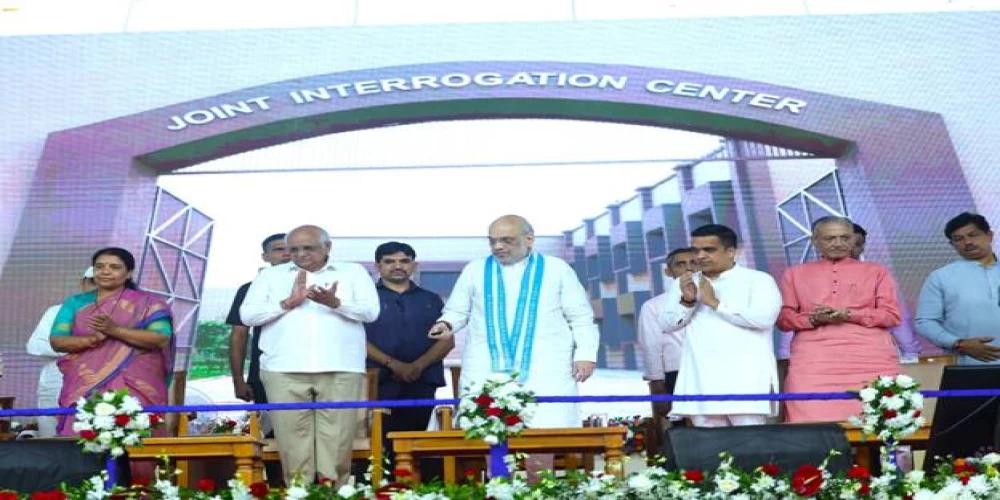
Ahmedabad: Union Home Minister and Minister of Cooperation, Amit Shah, inaugurated the newly constructed Police Commissioner’s Office in Ahmedabad, Gujarat, on October 3, 2024. The event was also attended by the Chief Minister of Gujarat, Bhupendra Patel, along with other dignitaries.
During his address, Amit Shah highlighted that the new building of the Police Commissioner’s Office will enhance the operational capacity of the Ahmedabad Police, establishing a modern and efficient working system. The seven-storey building, constructed with modern technology at a cost of approximately ₹140 crore and covering an area of 18,000 square meters, includes a range of facilities such as a gym for police personnel, parking for citizens, CCTV cameras, fire safety equipment, and centralized air conditioning. Additionally, the new structure houses a police museum that showcases the security measures undertaken for Ahmedabad from its early days to the present.
Amit Shah also mentioned the memorial built to honour the police personnel who were martyred while protecting the citizens. Furthermore, a public convenience centre and a state-of-the-art control room have been established, ensuring the security of every corner of Ahmedabad.
As part of the inauguration, the 'Joint Interrogation Center,' the 'Tera Tujhko Arpan' portal, and the book 'Cyber Saathi' were launched. These initiatives aim to create awareness around cybercrime and assist victims in recovering their lost money. The 'Joint Interrogation Center' is designed to facilitate coordinated investigations between central agencies and Ahmedabad Police in cases of riots, terrorist attacks, and other emergencies.
Amit Shah noted that over the past decade, India’s internal security landscape has undergone a significant transformation. Previously, areas like Kashmir, the Northeast, and Naxal-affected regions were plagued by frequent bomb blasts, which had become a normal occurrence. However, under the leadership of Prime Minister Narendra Modi, security efforts in these regions have resulted in a 70 per cent reduction in violence. Collaboration between state police forces and security agencies has reduced fatalities in these areas by 72 per cent. He expressed confidence that India is on the path to becoming both Naxal-free and terrorism-free in the near future.
The Home Minister also spoke about Modi's efforts to transform police culture by promoting a pro-active, predictive, and scientific approach to policing. He pointed out that India has reformed its colonial-era criminal laws, introducing three new laws designed to leverage technology for solving and preventing crimes, ensuring quick prosecution, and delivering justice efficiently. These laws are forward-looking, accounting for future technologies, and will prevent the need for major revisions over the next century. Time limits have been introduced in 83 areas of the judicial process to avoid delays in investigations, prosecutions, and other legal matters.
Amit Shah added that the infrastructure needed for the implementation of these new laws is already under development. In the next three years, India's criminal justice system is set to become one of the most modern in the world. Under the new framework, the entire process, from the filing of an FIR to the final verdict by the Supreme Court, will be completed within three years, ensuring timely justice for all.
He further praised the Gujarat Police for its innovative use of technology, with projects such as 'E-GujCop,' body-worn cameras, and the 'Vishwas Project,' which have earned it a reputation as one of the most modern police forces in the country. Gujarat Police’s campaign against narcotics has been exemplary, setting a national benchmark for investigative excellence.
Shah concluded by stating that Prime Minister Narendra Modi envisions a 'Viksit Bharat' by 2047. Gujarat, a progressive state, has come a long way from the curfew-ridden days of the 1980s and 1990s, with the current environment now being one of safety and security.
BI Bureau


